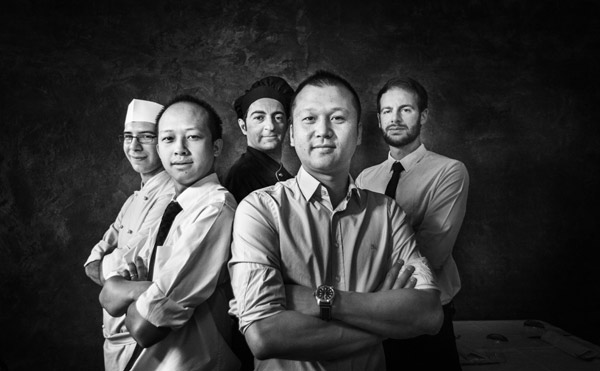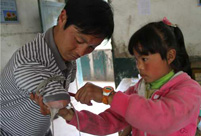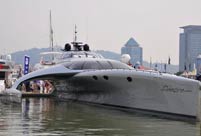 |
| Second-generation Chinese-Italian entrepreneur Francesco Wu says businesses that come through the nasty downturns offer outstanding value.[Photo / Provided to China Daily] |
Second-generation Sino-Italian entrepreneurs fighting recession
Sino-Italian entrepreneurs' businesses have continued to post moderate growth throughout Italy's worst economic crisis in decades. Nevertheless, they are showing slight signs of fatigue, especially in the import-export sector, experts say.
"Chinese communities in Italy are also having to weather the crisis, since this is a recession on a European scale and most of the Sino-Italian entrepreneurs' clients are European," says Junyi Bai, president of Associna, the most important and active cultural association of second-generation Chinese-Italians. As a corporate lawyer, Bai also deals with transnational operations between Italy and China.
"The crisis is biting us, too," says Francesco Wu, entrepreneur and founder of Unione Imprenditori Italia Cina, a new and innovative association of second-generation Sino-Italian entrepreneurs that offers mentoring and entrepreneurial education, information, integration and job formation and aims to facilitate dialogue with Italian institutions.
The Italian manufacturing sector has around 23,500 enterprises, 17,650 of which are shoe and clothing laboratories. The restaurant sector is also quite solid: It has 12,500 activities nationwide. Personal care businesses are likewise in good shape, especially hair and beauty salons which, according to a recent survey by industrial association Mestre Cgia, posted some of the most rapid growth numbers of recent months, with a 38.8 percent rise.
On the other hand, "the imports from China are slowing down", Wu says.
After several jobs, two years ago Wu, who was educated as an electronic engineer at the Milan Politecnico, decided to enter the restaurant sector, one that is generally in good shape.
"My choice was primarily because of the fact that my family's business was no longer working," he says. "The recession has badly bruised the garment sector - all those small Chinese labs common in Lombardy are the worst affected," he says.
Wu was totally smitten with the idea of buying and managing an Italian restaurant. While combining Italian and Chinese cuisine has been a trend for the last seven years, very few restaurants are totally dedicated to Italian food. They are still a rarity.
Wu's restaurant, Borgo Antico, is in Legnano, 25 km northwest of Milan. "My restaurant had an annual growth of 15 percent last year," Wu says.
"Businesses that come through these nasty downturns offer outstanding value," Wu says.
Bai adds that product and service quality has improved considerably after the arrival of second-generation Chinese-Italian entrepreneurs. They want to invest more in innovation, he says. "I myself have made the first steps toward innovation with my restaurant."

 No news of survivors in Lao Airlines crash
No news of survivors in Lao Airlines crash Five fighters in flight training
Five fighters in flight training London mayor hails free trade, subway system on China tour
London mayor hails free trade, subway system on China tour Chalk it up to great courage
Chalk it up to great courage Tibetan girl helps mobilize volunteers onlin
Tibetan girl helps mobilize volunteers onlin Photo story: A day in the life of a car model
Photo story: A day in the life of a car model Chinese screen goddesses from Beijing Film Academy
Chinese screen goddesses from Beijing Film Academy  Weekly Sports Photos
Weekly Sports Photos World's most amazing yacht on display in Guangzhou
World's most amazing yacht on display in Guangzhou Bayi Parachute Team of PLA Air Force
Bayi Parachute Team of PLA Air Force Cold air sweeps through N China
Cold air sweeps through N China The last family in shantytowns
The last family in shantytowns UNESCO world heritage site: Montale Tower
UNESCO world heritage site: Montale Tower U.S. Senate leader announces bipartisan deal
U.S. Senate leader announces bipartisan deal Fiber-optic wedding dress show shinning in Suzhou
Fiber-optic wedding dress show shinning in Suzhou Day|Week|Month